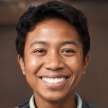How is the master of the Republic of China tempered
How is the master of the Republic of China tempered

If the Chinese people found that in addition to the four books and Five Classics, there is also a natural science, and large-scale hard learning, starting from the Boxer indemnity to study abroad at public expense. I don't know how to take the exam when the Boxer indemnity study abroad, but at that time, most private schools only read the four books and five classics, so the Boxer indemnity study abroad examination, probably can only be based on literature and history. In fact, among the students who received the Boxer indemnity, those who later achieved great achievements in natural science were all familiar with the history of classics.
(a)
Zeng Zhaoquan, the great-grandson of Zeng Guofan, was in the first period of the Boxer indemnity overseas students. The most famous one in the late Qing Dynasty was Zeng Guofan, and Li Hongzhang, who was later in power, was his protege. However, more than power is the strict education of Zeng Guofan's children, the city spread Zeng's family teachings, lasting for one hundred years, we can see. He stipulated that the children of the family read five pages of paper every day since childhood, write 100, every three every eight to make a poem, the history of subsets, all must read. As a result, Zeng Zhaoquan, his great-grandson, studied electrical engineering at the Massachusetts Institute of Technology in the United States at the age of 16.
Mr. Mei Yiqi, another student in the first period of Boxer Indemnity, was honored as the eternal president of Tsinghua University. Her father was a scholar, Mei read literature and history since childhood, once said "who back the ancient Chinese classics have errors and omissions, I can back any chapter" words. He was admitted to the first phase of Nankai School and became Zhang Boling's favorite student. Studied in the United States, majoring in electrical engineering.
Zhao Yuanren, who was in the second phase of the Boxer Indemnity, was later named as one of the four major teachers of Tsinghua University, along with Liang Qichao, Wang Guowei, and Chen Yinka. His father was in the late Qing Dynasty, and his mother is good at poetry Kunqu opera. Zhao Yuanren received his childhood training and studied the history of economics. He majored in mathematics at Cornell University in the United States and obtained his bachelor's degree in mathematics with a minor in physics. After getting his Ph.D. at Harvard, he returned to teach physics at Cornell. Returning to China in 1920, Zhao Yuanren taught mathematics and physics at Tsinghua University. When he returned to the United States to teach, he began to specialize in the study of linguistics and became a master.
Geng Zi Indemnity study abroad second phase students, there is a meteorologist Mr. Zhu Kezhen. Zhu Kezhen began to read at the age of two after, strict family education, since childhood in a private school. After studying abroad at public expense, he majored in agronomy at the University of Illinois in the United States, and then transferred to the Department of Geography at Harvard University, where he majored in meteorology and received his doctorate.
After the Boxer indemnity period, the Qing government changed the office of Youesthetics, which was in charge of studying abroad, into Tsinghua Xuetang. The most famous student in the first phase of Tsinghua School is Mr. Ye Qisun. The great-ancestor of Ye Qisun was an official in the Daoguang period of the Qing Dynasty, and he studied rituals in his later years. His grandfather served in the Imperial College, the official to the fifth. In ancient China, the imperial college was equivalent to the central official school and was the highest institution of higher learning in the country. Ye Qisun's father, Zeng Zhong, was the 15th person in the Jiangnan Township examination on the first afternoon of the year. He served as the principal of the Dedicated School, the Chinese teacher of Tsinghua School, and the president of the Shanghai Education Association. Ye Qisun was gifted and clever. He followed his father's strict upbringing and studied sutra since childhood. At the age of less than 13, he was admitted to Tsinghua School. After graduation, he went to the University of Chicago to study physics.
Qian Sanqiang, the father of atomic energy, was born in a scholarly family. His father was Qian Xuantong, a great writer, and Chen Duxiu, Li Dazhao, Yan Fu, Hu Shi, etc. At the age of 7, Qian Sanqiang was sent to Kongde School, which was founded by CAI Yuanpei, Li Sheng, Shen Yinmo, and other masters of literature and history, to continue his excellent education. After graduating from Tsinghua University, Qian Sanqiang went to France to study under the guidance of Madame Curie's daughter and son-in-law and obtained the French national Doctor's degree.
Li Siguang was the founder of modern geology in China. He studied in a private school taught by his father since he was young. He left at the age of 14 and went to the Higher Primary School in Wuchang.
Zeng Zhaoquan, WHO WAS IN THE FIRST PHASE OF THE BOXER INDEMNITY, HAS AN UNCLE, ZENG ZHAOLUN, WHO ALSO STUDIED ABROAD AT PUBLIC EXPENSE AND graduated FROM MIT UNIVERSITY. Zeng Guofan's second brother was Zeng Guohuang, and Zeng Zhaolun was Zeng Guohuang's great-grandson. Zeng's father was a Juren and his mother came from a famous family. At the age of 16, he was admitted to the preparatory School of Tsinghua University in the United States, and later went to the United States to study, and received a doctorate in chemical engineering from the Massachusetts Institute of Technology.
(2)
Qian Xuesen, the father of Chinese aerospace, was born in a scholarly family. At the age of three, he could recite hundreds of Tang and Song poems and could add, subtract, multiply and divide in his head. His father worked in the government of the Republic of China. Qian moved to Beijing with his family and enrolled in Beijing Normal High School. Later, he studied in the Department of Aeronautics of Massachusetts Institute of Technology, and then transferred to the Department of Aeronautics of California Institute of Technology, where he received a master's degree in aeronautical engineering and a doctor's degree in aeronautical mathematics.
Deng Jiaxian, the father of China's missiles, was also from a literate family. His predecessor was known as the first calligrapher and seal cutter in the Four Body Jingguo Dynasty. His father was also a famous esthetician and art historian who taught philosophy at Tsinghua and Peking Universities. Deng Jiaxian 5 years old into primary school, father guidance, reading history reading text, solid foundation, and Yang Zhenning with Beijing Chongde Middle School. After graduating from the Department of Physics of Southwest Associated University, he taught at Peking University and later studied at Purdue University in the United States, where he received a Ph.D. in physics.
Physicist Zhou Peiyuan was born into a scholarly family. His father was a scholar in the Qing Dynasty. He first entered Shanghai St. John's High School, then entered Tsinghua Secondary School. He was selected to study in the Department of Mathematics at the University of Chicago. After receiving his master's degree, he transferred to the California Institute of Technology and received his Doctor of Science degree. He also went to the University of Leipzig in Germany, and then to the Polytechnic School of Zurich in Switzerland, engaged in research.
Different from these physicists, Wu Youxun, the founder of modern Chinese physics, was not born into a scholarly family. His father opened a shop for a living, and his mother kept the family thrifty, so the family was well-off. Wu Youxun entered old School at the age of 7 and read four books and five classics. At the age of 12, he entered a private school. Besides literature and history, he concurrently studied mathematics and physics. History of Wu Youxun, a farmer's son, first went to the county and then to the provincial capital. He spent all his youth with books. Later, he was admitted to the Physics and Chemistry Department of Nanjing Higher Normal University, and was sent to the University of Chicago in the United States after graduation.
His grandfather was a scholar in the Qing Dynasty and a famous scholar in Zhenjiang who founded the Nanyang Official Newspaper.
Military scientist Jiang Baili was born in a scholarly family, in the country private school enlightenment, hard to read literature and history classics, the examination of the scholar. After entering Qiushi Academy in Zhejiang Province, he was recognized by local officials and went to Japan to study. Meanwhile, I organized the Association of Zhejiang students studying in Japan, edited and printed the journal "Zhejiang Tide", and served as the first chief editor. After returning to China, he devoted himself to the revolutionary activities of the Republic of China and served as the first principal of the Baoding Military Officer School. His students included Chen Mingshu, Tang Shengzhi, Fang Shengtao, Liu Wendao, Zhang Zhizhong, Chen Cheng, and so on. Jiang Beli was a close student of Liang Qichao. He also debated with Liang Qichao. His famous saying "I love my teacher, but I love the truth even more" has been handed down to this day.
What these 14 scientists have in common is good family circumstances -- not wealth or power. A literate family, not a powerful family. Geologist Li Siguang and physicist Wu Youxun were born into poor families but were sent to private schools by their parents when they were young.
(3)
In recent years, Mr. Gong Yuzhi spared no effort to call for the restoration of both arts and science. Gong Yuzhi once studied at the old Tsinghua University and received both arts and science education under the leadership of President Mei Yiqi. He benefited all his life and became an outstanding talent. In recent years, he has published articles and lectured everywhere, arguing against the separation of science and humanities education, pointing out that with the development of human society, many new problems cannot be solved by natural science alone. To adapt to this situation, it is increasingly necessary to cultivate talents who integrate literature and science.
The current high school penniless management class, is a big mistake, causing endless harm. The SCHOOL OF SCIENCE LIVING ALL DAY ONLY KNOW BACK FORMULA, CALCULATE EXERCISE, ARTICLE CAN'T PICK UP a PEN TO MAKE THEORY, HISTORY DOES NOT KNOW THROUGH THE AGES, ALL the WAY TO, BECOME A COMPUTING MACHINE AT MOST IN the future. Do not know how to be a person of integrity, also have no independent thinking ability, can not talk about creation, and how to be a scientist. A major part of a good learning environment is to be familiar with literature and history. More than a dozen of the great scientists discussed in this article were educated in private schools and learned from their childhood. Read the history of literature, through the ancient and modern, cultivate morality, learn to be a man, the so-called first to become a man, and then to become a scientist.
Another important element of a good learning environment is the guidance of a good teacher. More than a dozen of the above scientists have studied abroad. China's higher education sector, far behind the western countries so far, should receive a good higher education, and go overseas, no doubt. These scientists were blessed with many famous mentors. Ye Qisun's tutor in the United States was Nobel Laureate in physics Bridgeman, and Qian Sanqiang studied in France with the daughter and son-in-law of Marie Curie. Qian Xuesen was supervised by world-renowned aerodynamics professor Carmen Feng and collaborated on the paper that created Karman Qian's Theorem. Zhou Pei-yuan studied at the University of Leipzig under the Nobel Prize winner Heisenberg, the founder of quantum mechanics, first from Beidmann and then from Bell. Wu's mentor in the United States was Joseph Compton, who won the Nobel Prize in physics for discovering the Compton effect.
In 1999, the Chinese government awarded 23 scientific and technological experts who had made outstanding contributions to the development of two bombs and one satellite. Among them, 19 were students of Ye Qisun, two were students of Ye Qisun, and the other two also had close academic relations with Ye Qin.
Born into poverty, Hua dropped out of high school to help his father run the family shop. He insisted on self-study, published papers, and rose to prominence. Xiong Qinglai, the dean of the mathematics department of Tsinghua University, discovered him and invited him to Tsinghua University, where he studied and worked. Later, he was appointed as a teaching assistant, which made him embark on a bright road of mathematical research.
The question for many people now is: where to find such intellectual, ethical and discerning teachers? And where to look for Hua Luogeng to do the shop boy math master in the future?
China needs more successful scientists, China needs more successful education in literature and history, China needs a better family environment, China needs a better early education environment, and above all, China needs a better academic environment.
About the Creator
Enjoyed the story? Support the Creator.
Subscribe for free to receive all their stories in your feed. You could also pledge your support or give them a one-off tip, letting them know you appreciate their work.






Comments
There are no comments for this story
Be the first to respond and start the conversation.